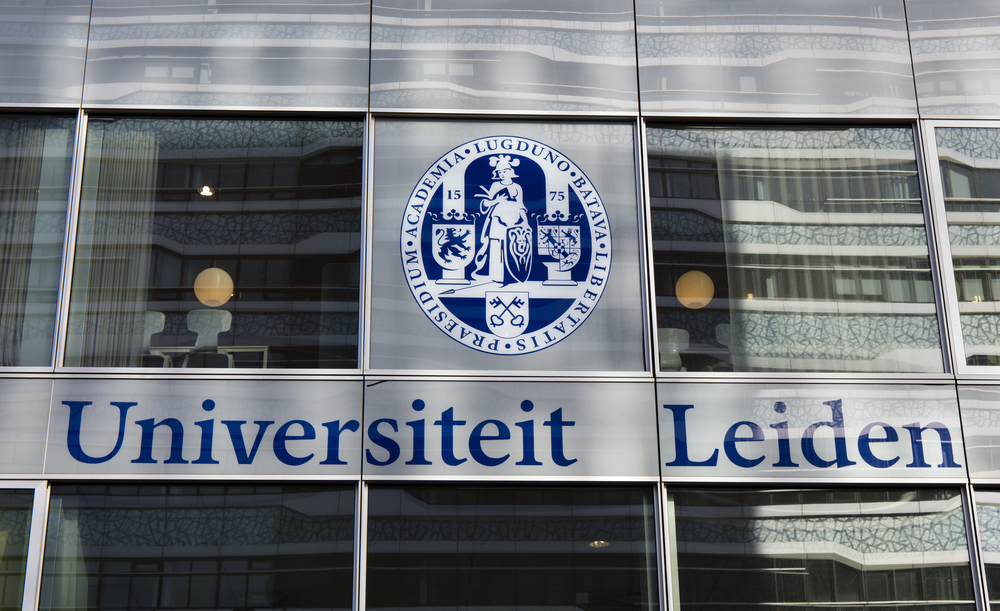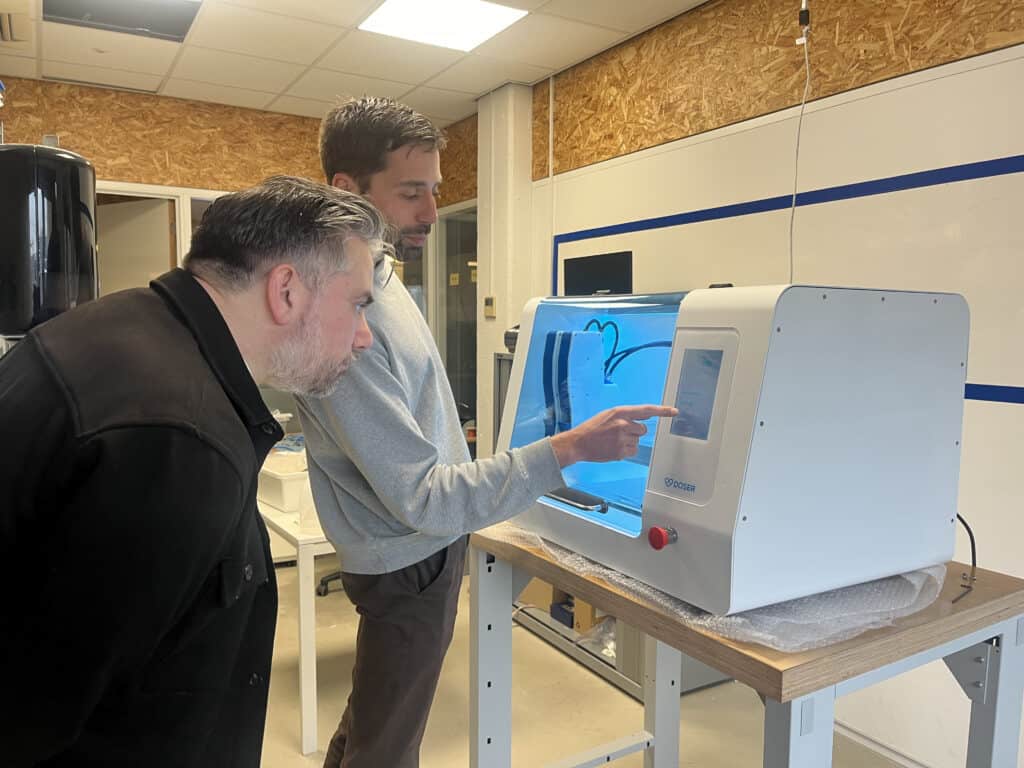What if your medication was made just for you? No more one-size-fits-all pills, but a personalised dose printed on demand. That’s not some abstract idea from the future; it’s what Leiden-based start-up Doser makes possible with its 3D printing technology.
Sounds amazing? That’s what we thought as well — so we sat down with co-founder Arjan van Unen to learn more.
What does Doser do?
Dubbed the “Nespresso machine for pills” by Dutch media, Doser makes 3D printers that allow pharmacists to print tailor-made pills, ensuring patients get exactly what they need.
“The pharmacy tells the printer what they want to print, press start, and then it will print it. After that, they can package the medicine, label it, and issue it to the patient,” Arjan explains.
“We do this because many patients do not receive the right medicine,” he says — and this is true for many areas of medicine. Doser’s approach is particularly game-changing for fields like addiction treatment and paediatrics.
“A six-month-old needs a very different dose than a six-year-old,” and Doser’s technology can precisely adjust dosages to match age, weight, and condition, solving a major issue in medication safety.
READ MORE | 5 Dutch start-ups that give us hope for the future
Similarly, for those recovering from addiction, gradual dosage reduction is key. “Tapering off medication slowly can prevent severe withdrawal symptoms,” Arjan notes — and with Doser’s precision printing, patients can follow a smoother, safer transition to recovery.
Last but certainly not least, Doser’s technology also addresses the issue of orphan drugs — medications for rare diseases.
In these cases, patients often require small, precise batches of medicine. According to Arjan, Doser’s printer can meet these demands while adhering to strict quality standards, creating opportunities for people with rare conditions who previously lacked access to appropriate treatments.

How did Doser get started?
Doser was born from the expertise of Arjan and his co-founder Niels, a biochemistry specialist with a background in big pharma.
They realised that 3D printing could revolutionise drug development and patient care. “I thought: This is it, the best application of a 3D printer I’ve seen,” Arjan recalls.
Support from Leiden’s start-up hub, PLNT, and its start-up incubator, unlock_, helped Doser grow. “Being part of unlock_ meant immediate access to experienced biotech entrepreneurs,” Arjan shares.
The Leiden ecosystem, known for its biotech and medtech innovation, also proved to be the perfect environment for Doser.
What are some major milestones in Doser’s journey?
Since it was founded, Doser has achieved multiple impressive milestones that have shaped its growth.
One major highlight was the first clinical study by Kirsten Schimmel and Iris Lefeber at Leiden University, showcasing the potential of Doser’s 3D-printed medication. “That was really in the beginning — about a year after we started,” Arjan says.

As for any start-up, another key moment for Doser was when they secured their first investment, from none other than Rabobank. This financial backing allowed Doser to scale up its operations and continue developing its technology.
“Without that, we would never have been here,” Arjan smiles.
What impact does Doser want to make in the future?
Doser’s goal for the future is for personalised medicine to be the norm, rather than an exception.
Arjan explains that currently, fewer than 3% of patients receive customised treatments, but within the next ten years, they would like to see that number rise to at least 10%.
Arjan is particularly passionate about addiction treatment. “Hundreds of thousands of people die every year from addiction, and that’s an area we would like to make an impact in as well.”
By providing a gradual tapering solution through personalised medication, Doser can play a key role in addressing the opioid crisis and other addiction-related issues, saving lives in the process.

At the same time, Arjan stresses that we don’t have to only look at the future, as the technology already exists: “Personalised medicine is not a dream anymore — it’s here,” Arjan emphasises. “You can buy these machines, including from us. Pharmacists can buy them. Hospitals can buy them. Researchers can buy them. And personalised medicine can simply be given to the patient.”
With this innovative approach, Doser is already making a tangible impact on healthcare, and the future looks promising — not just for the company but for the patients who will benefit from its technology.
What do you think of Doser’s story? Share your thoughts in the comments!
